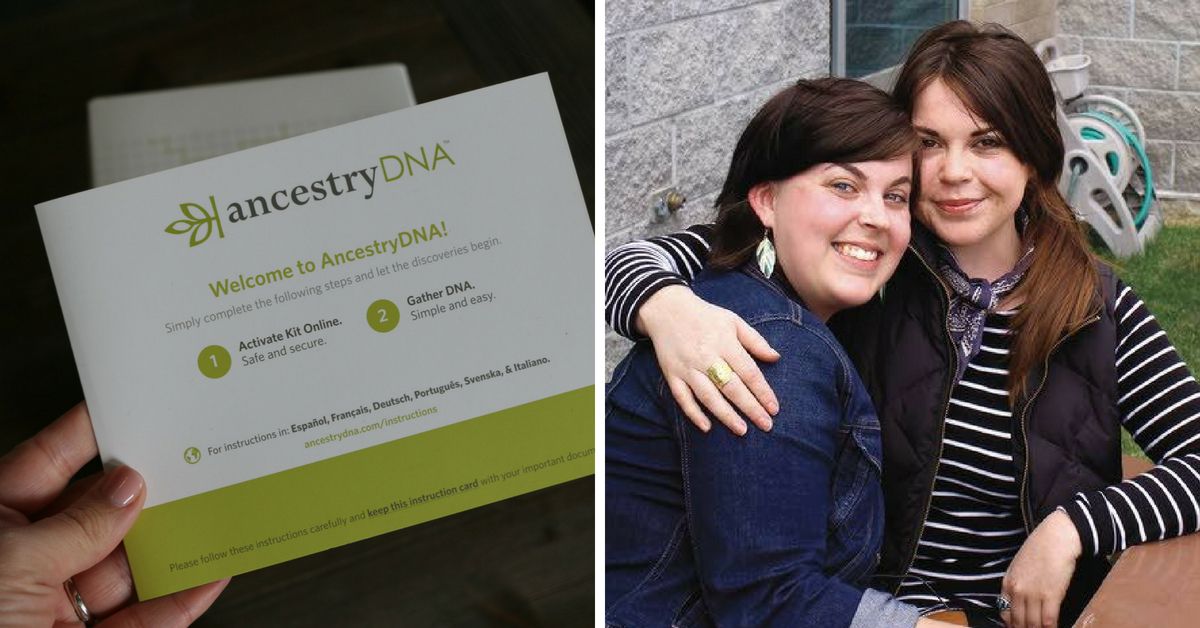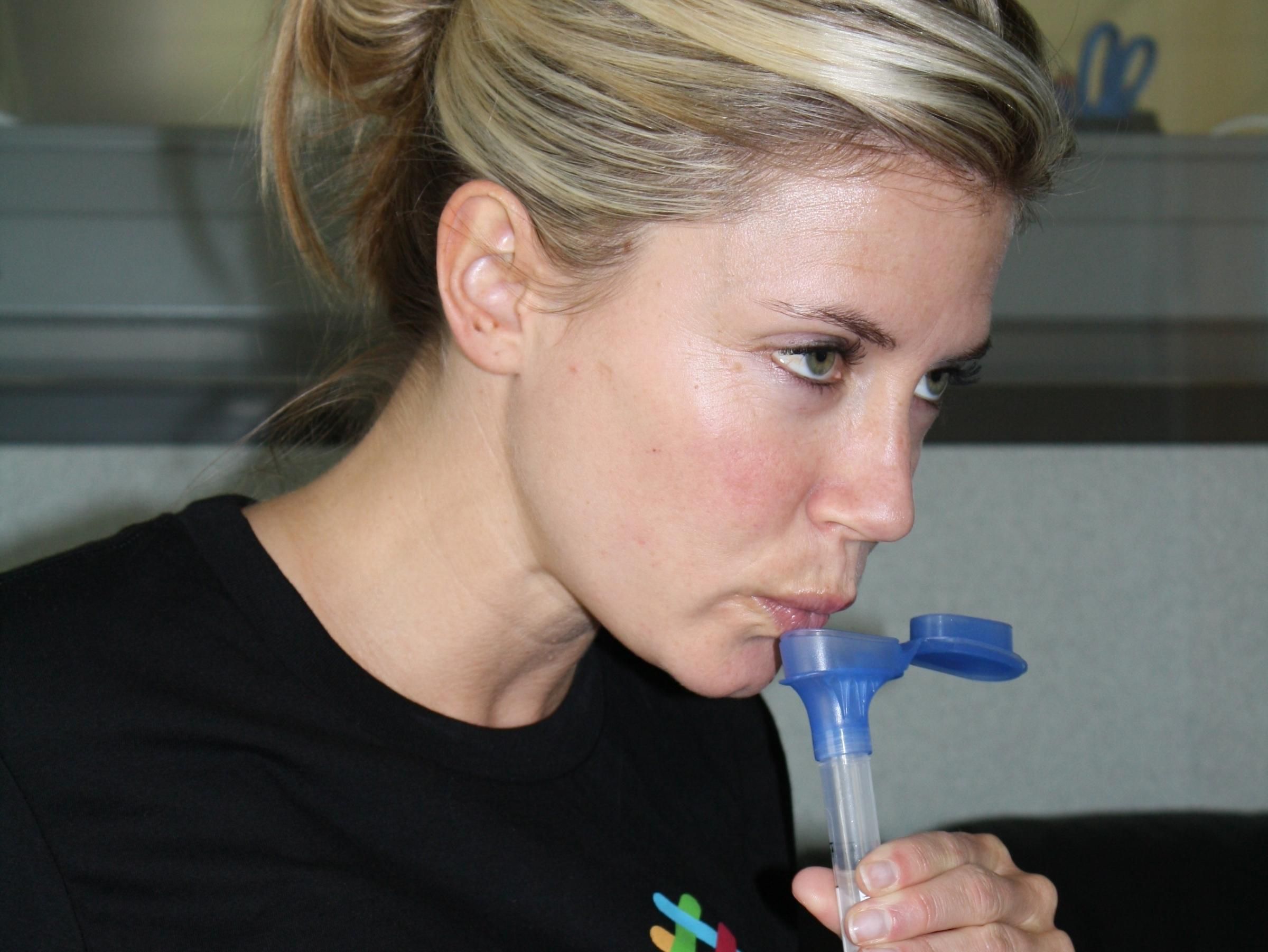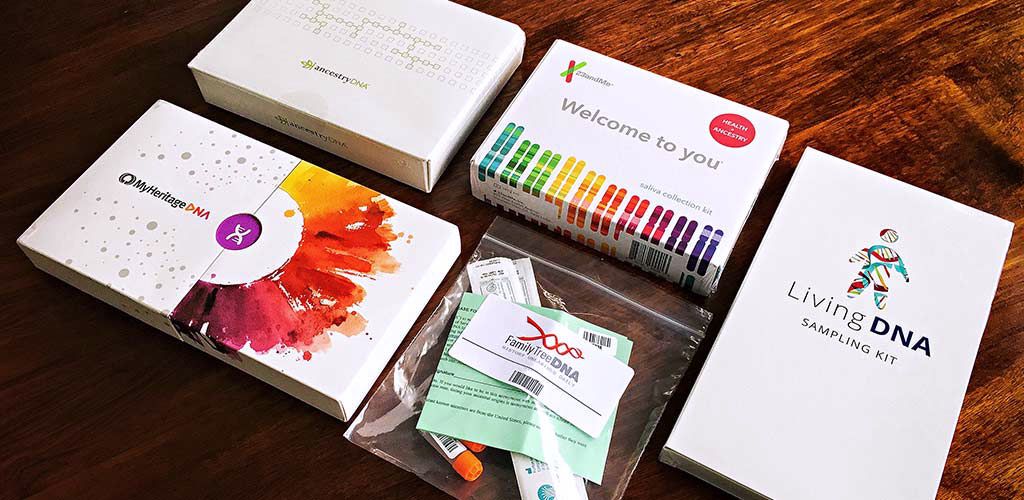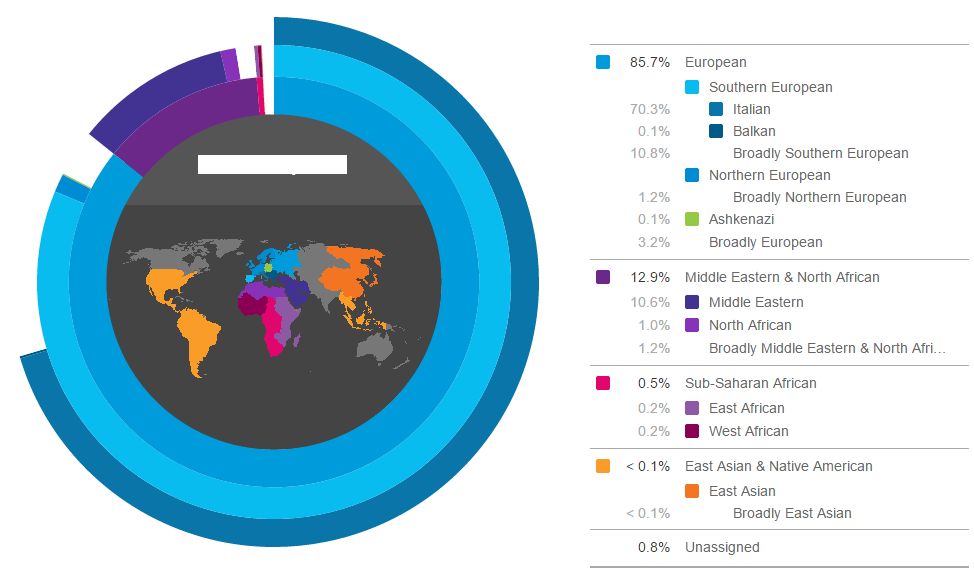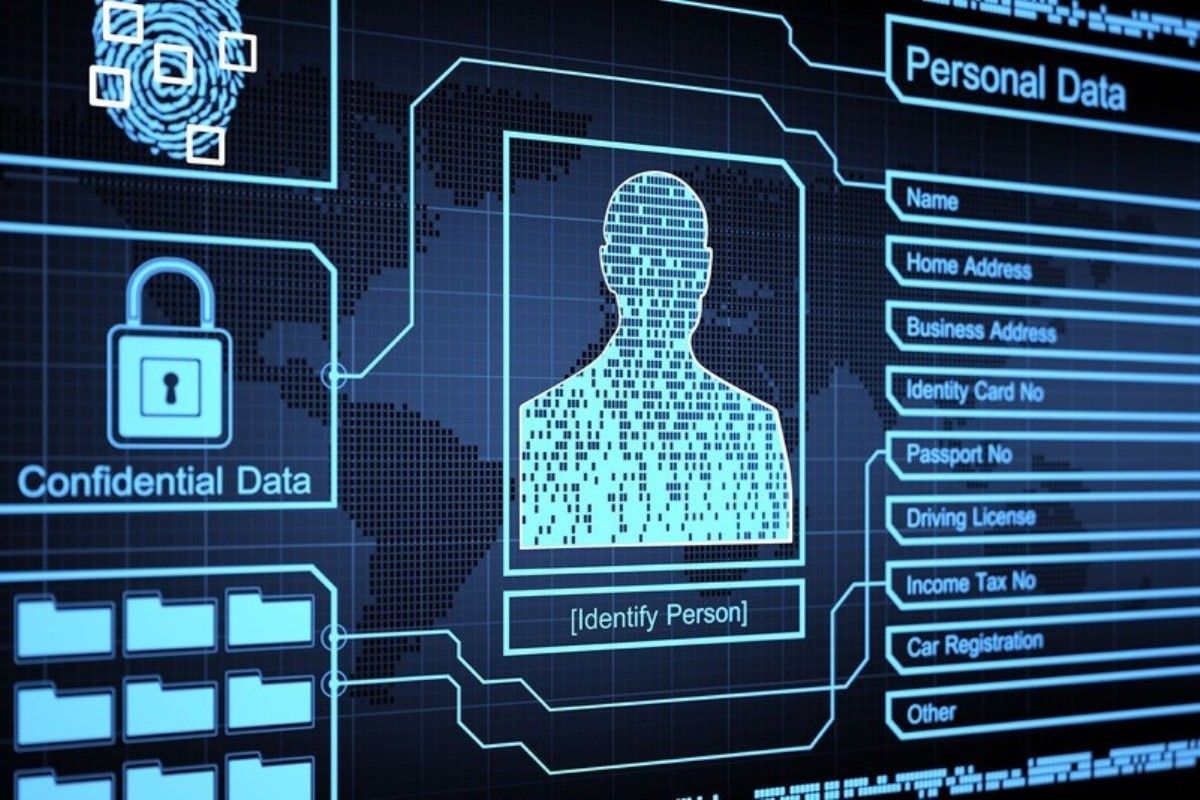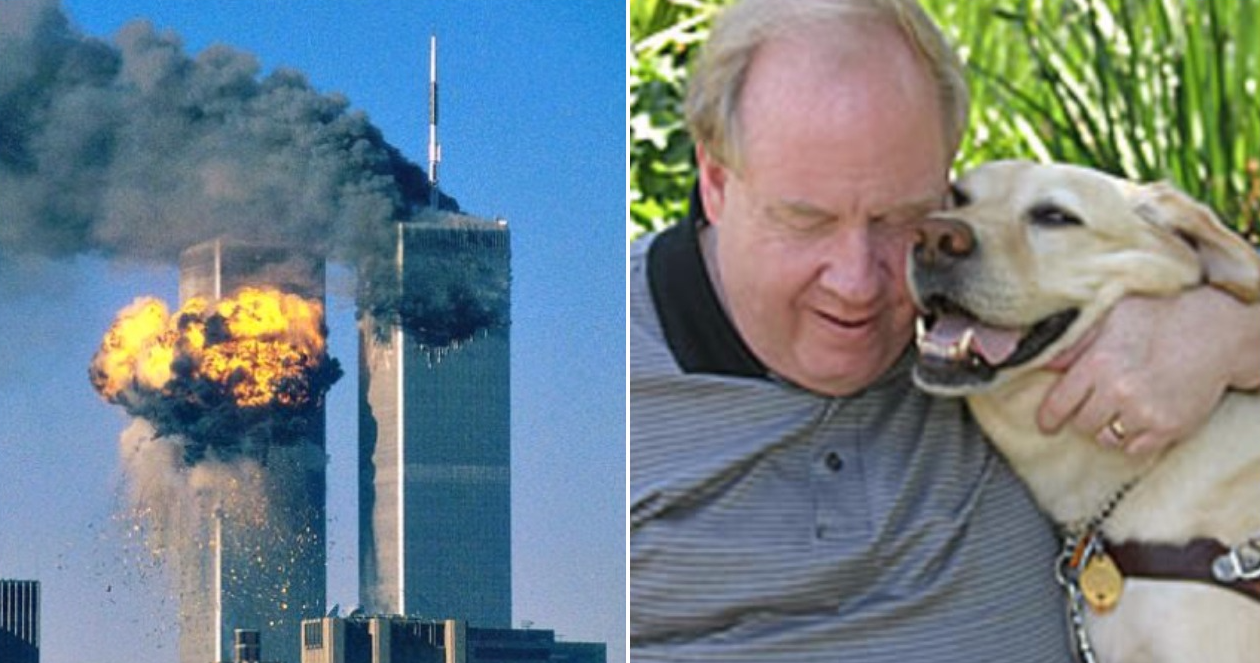DNA test kits are becoming the most popular gift for friends and family.
The idea of knowing your lineage and all the places in the world your ancestors have inhabited is undoubtedly exciting.
You're basically uncovering a story that's written in your blood. We're all suckers for those kinds of tales.
Even learning about other people's backgrounds gets me excited. Sometimes I'll spend hours watching YouTube videos of people making a startling discovery about their family heritage.
On the news you'll hear stories about how these test results have brought families together.
Some people have found their biological parents or their siblings through these mail-in kits. These stories always warm my heart.
It's incredible how all this information can be learned from a quick saliva test.
When you send off this tube of your DNA, genetic researchers look at your chromosomes to determine your ethnic mix from both sides of your family.
DNA testing companies like AncestryDNA, 23andMe, MyHeritage, Family Tree DNA, and Living DNA claim to unlock the truth about your past, which is why genomics has become a billion dollar industry.
Some of these companies will even let you know about any genetic health risks you may have, but at an extra cost.
These kits start from $79, which is a bargain price if they're able to reveal something fascinating about your past or present life.
Millions of people's lives have changed after getting their DNA test results.
Here's my story:
A few months ago, my brother purchased a 23AndMe test kit out of pure curiosity.
He was fascinated by the trend and wanted to learn more about our family heritage.
The test results came back two weeks later, which was quicker than what we had anticipated.
The pie chart on our ancestry wasn't shocking at all, but some parts peaked our interest, like how we have small amounts of Native American in our blood.
We were curious to see if any distant family members also got the test done, and that's when we knew we got more bang for our buck.
My brother shared 25% of the same DNA with a woman who lived five hours away from our city. This meant only one thing: She was our half sibling.
We immediately got in contact with her and discovered that we were related from our father's side.
This news was even a shock for my father who had no idea he had a daughter.
But after all the "oohs and aahs" came two very important questions:
How accurate are these results?
Last week we looked at my brother's DNA results and we noticed a slight change in the pie chart.
There was no denying that we found our half-sister, but I still questioned how accurate and reliable these tests can be.
After further researching into these companies, I came across some interesting.
According to Sheldon Krimsky, an adjunct professor in public health and community medicine at Tufts, no one really knows how reliable these genetic tests are:
"[These companies] don't share their data, and their methods are not validated by an independent group of scientists and there are not agreed-upon standards of accuracy. People have sent their DNA to several of these companies and found differences in the results"”though not necessarily radical differences. So you have to look at the percentages you receive back with skepticism."
Inside Edition also questioned the reliability of these at-home kits and conducted an investigation of their own.
With the help of three sets of identical triplets and a set of identical quadruplets, the news site were "shocked" by the discrepancies.
Inside Edition asked the daughter-in-law of Dr. Phil to get her two identical sisters to share their DNA with AncestryDNA and 23AndMe, the two most popular at-home kits in the market.
Their ancestry should be identical, but it wasn't.
Their results from 23andMe highlighted that all three are "99% European," but one of the sister's results said she was just 11% French/German, while another sister tested at 22% in the same category.
The Maynard triplets, famous for appearing on American Idol, had similar errors in their test results from Family Tree DNA.
For example, one sister had 6% Scandinavian DNA according to the test, while her sisters tests showed none.
Triplets from New Jersey had almost identical results from AncestryDNA. The only difference was that their ancestry percentage from Great Britain ranged from 45-47%.
And the quadruplets had perfect matching ancestry results from 23AndMe.
By now you're probably wondering, what's going on?
These companies are always working on improving their ancestry algorithms, but take everything you see with a grain of salt.
Genetic tests may not all be 100% accurate, but they're also not inaccurate, which explains the change in my brother's pie chart.
What about your privacy? (You're not going to like this)
These DNA ancestry tests were the hottest gift of 2017, but after the Cambridge Analytica data scandal, everyone's concerned about their privacy.
You'd think these companies make all their profit from what customers pay to get their ancestry results, but that's far from the truth.
Many of these companies make most of their profits from selling your genetic information to other companies.
According to Tufts, it's not just your data, it's your saliva sample too.
These "other" companies are usually pharmaceutical corporations who are trying to learn more about drug development, but there's no telling where else your information could end up.
In April 2018, investigators found one of California's most wanted men by using online genealogical sites to find a DNA match.
This breaking news story raised a lot of questions about privacy and how these sites are using our information.
Keep in mind, if these biotechnology companies were ever to be sold, your information might get into the wrong hands.
Make sure you read the fine print before you get one of these tests done. Even after the test, keep yourself up-to-date with the company's privacy policies.
Krimsky raised another good point about these ancestry kits that most people don't consider:
"I don't know that people who sign up with these services fully understand all the possible implications of the results they could receive back."
While my family feels blessed to have found another member of our family, that's not the kind of information everyone would want to know.
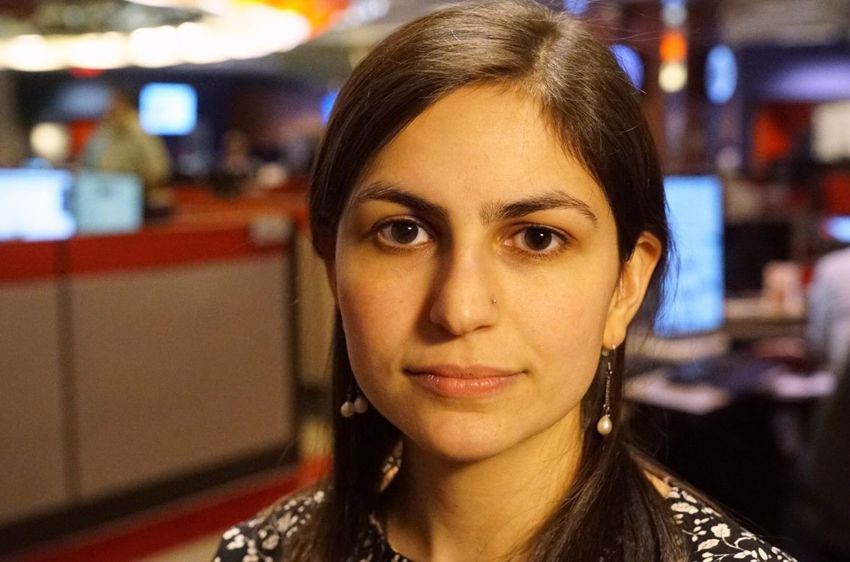
For example, one Canadian girl's DNA test revealed that the man who she called her dad wasn't actually her biological father.
Her real father turned out to be a fertility doctor who used his seed to impregnate dozens of patients.
"There's an immense breach of trust," Peter Cronyn, one of the lawyers working on the case said. "Women that we've talked to who went to see him speak of terms like 'violation.'"
Stories like these may be rare, but they're still important to take into consideration.
Has a DNA ancestry test changed anyone's life that you know of?
[H/T: Tufts / Inside Edition]
To read more information about your ancestry, click here.
